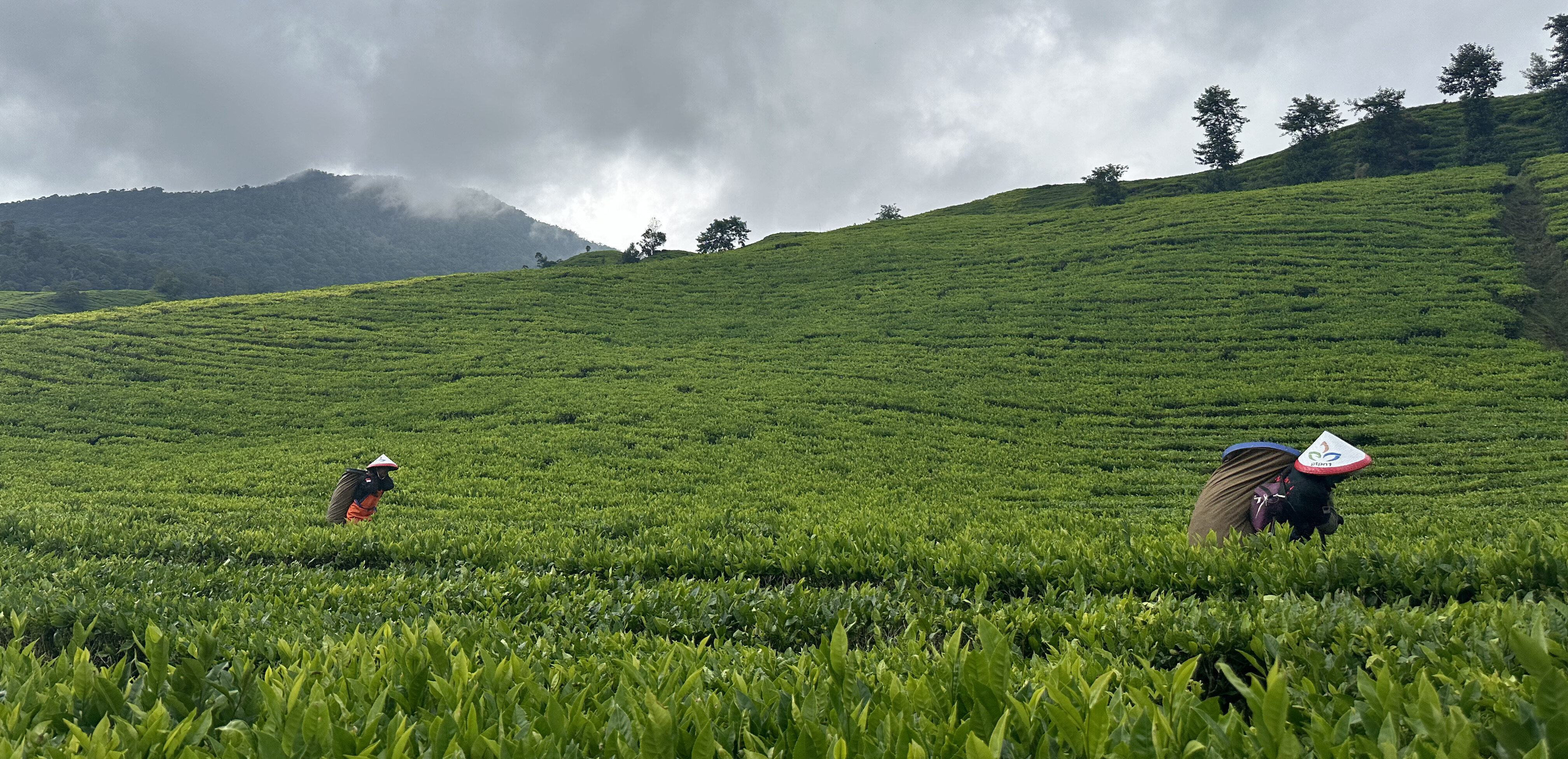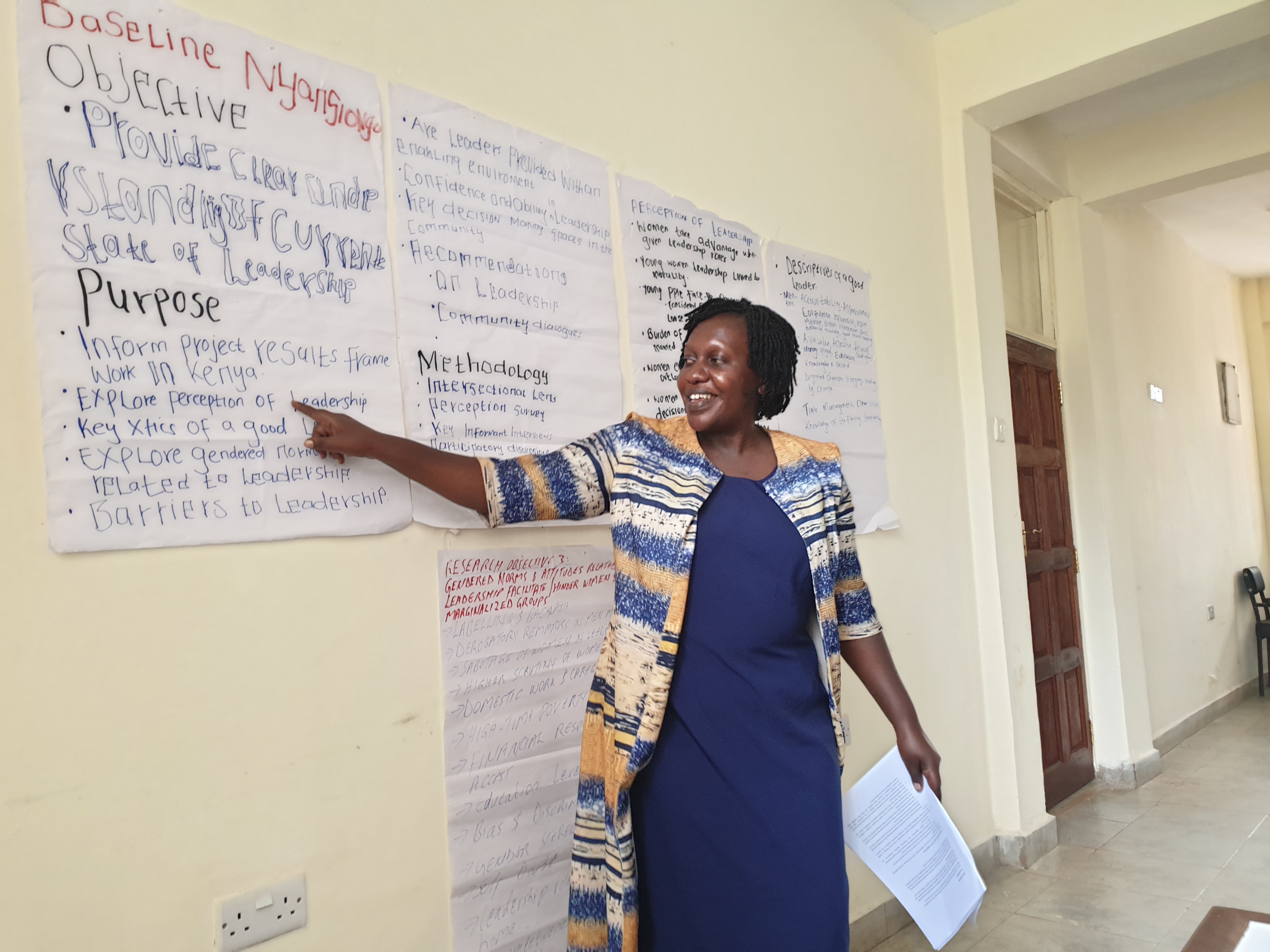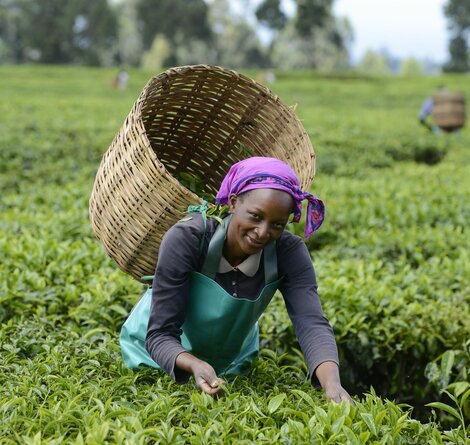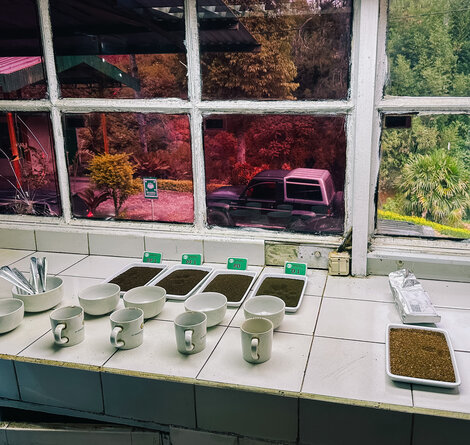Our Tea, Our Voice

Project description:
The project aims to foster an inclusive, transformative, and accountable tea sector, enabling women and politically marginalized groups to exercise and enjoy their rights. This involves adopting leadership models that value women's experiences, knowledge, and skills.
The Project’s approach on transformative leadership encompasses three key spheres of change:
- Individual: Enhancing how women see themselves in society and their confidence in taking action.
- Relational: Transforming power dynamics within the woman’s surrounding network.
- Structural: Enacting broader changes, including informal changes, e.g. social norms and societal attitudes, or formal changes in workplace policies.
From the outset, the project will practice transformative leadership by centering local women, and Women’s Rights Organizations in the design pr:ocess, allowing them to identify the most meaningful change pathways within their contexts.
Additionally, the Ethical Tea Partnership (ETP) will develop transformational leadership guidelines to enable ETP members to implement supportive sourcing practices.
"We are the change": Women tea workers take the lead

For years, women have been the backbone of tea production across Rwanda, Kenya, and Indonesia. They work the fields, harvest the leaves, and ensure the industry thrives. Yet when it comes to making decisions, their voices often go unnoticed. Leadership positions remain out of reach, blocked by deep-rooted traditions, structural barriers, and ingrained perceptions of who holds power.
"Our Tea, Our Voice" is challenging these circumstances — not by imposing solutions, but by amplifying the voices of women who already know what it is they need. The project, led and supported by Ethical Tea Partnership, GIZ, OTG, Ringtons, and Twinings, seeks to break down these barriers by creating leadership opportunities for women in the tea sector. But rather than imposing external solutions, the project is built from the ground up, and activities are derived from the lived experiences of tea workers themselves. Through dialogue, training, and structural support, women are provided the tools and networks to step into leadership roles — whether in cooperatives, business negotiations, or community decision-making spaces.
The approach is deeply participatory: it begins by understanding the specific cultural and economic challenges in each location and then developing tailored strategies to address them.
Before launching any activities, the project first conducted baseline studies across the tea-growing communities. These studies mapped out the social and economic realities of women in the tea sector, identifying the specific barriers keeping them out of leadership positions. The baseline studies confirmed what many women already knew: they were capable, willing, and ready to lead, but the structures around them made it nearly impossible. With this understanding, “Our Tea, Our Voice” began working with local partners to design a tailored approach that addressed the specific needs of each community. The first step? Creating spaces where women could openly discuss their challenges and begin shaping their own leadership paths.
More than just workers: Leaders in the making
Ms. Odette Mukansoro of DIDE Rwanda remembers the first workshops held with women tea workers. “DIDE was positively impressed by the immediate interest shown by the participants at all levels,” she says. “All who were invited attended and were so much willing to participate.”
The workshops didn’t begin with lectures or instructions. Instead, they started with listening. Women shared their stories — of exclusion, of struggles to balance work and family, of being overlooked when leadership opportunities arose.
From words to action: A new generation of leaders
Empowerment isn’t just about confidence—it’s about structure. That’s why Our Tea, Our Voice is establishing community-led monitoring systems, ensuring that women and young people are not just trained, but positioned to lead real change. “It is addressing real issues the participants face in their daily lives,” says Odette.
Local organizations like FERWACOTHE in Rwanda have been instrumental in shaping this effort. Jean Nepomuscene Nkulikiyinka, who leads the organization, sees gender equality as critical to the future of the Rwandan tea sector. “Because everyone, either woman or man, will know it’s right,” he explains. He was struck by the high level of engagement: an estimated 98% of participants in their workshops were actively involved.
Partners:
- Community Initiatives for Change and Development (CIFCAD)
CIFCAD’s mission is to deliver locally sustainable and quality solutions to grassroot communities to enable them to gain control of their future. It works towards achieving transformative leadership and good governance through trainings on gender equality and accountability as well as on gender-based violence prevention and response. - Ethical Tea Partnership
ETP is a global membership organisation that is catalysing long-term, systemic change, to benefit everybody who works in tea – especially people in tea-producing regions. - Fédération Rwandaise des Coopératives des Agriculteurs Thécoles (FERWACOTHE)
FERWACOTHE was founded in 2000 and represents Rwanda tea growers. It works to protect the interest of members and strengthens their capacity through trainings. Moreover, it offers advisory, advocacy and technical support to member tea cooperatives and promotes the cultivation of tea in Rwanda. - Kenya Tea Development Agency (KTDA)
KTDA Foundation Limited is a not-for-profit subsidiary of the Kenya Tea Development Authority (“KTDA”) Holdings Limited. The objective of the Foundation is to initiate interventions that improve the welfare of small holder tea farmers in Kenya through strategic partnerships and a wide range of programmes. - Organisation Dignité en Détention/Rwanda (DIDE Rwanda)
Organisation Dignité en Detention/ Rwanda (DIDE Rwanda) is non-government organisation working in peacebuilding, including the institutional capacity of correctional services and societal healing. Its areas of expertise include youth and women empowerment, education and vocational training, child protection, and collaborative economic livelihoods. - Ostfriesische Teegesellschaft (OTG)
- PT Perkebunan Nusantara (state tea producer PTPN)
The Indonesian state-owned company PTPN8 has the largest tea plantation in the country and its activities include tea cultivation, processing and export sale. - Ringtons
- Twinings

